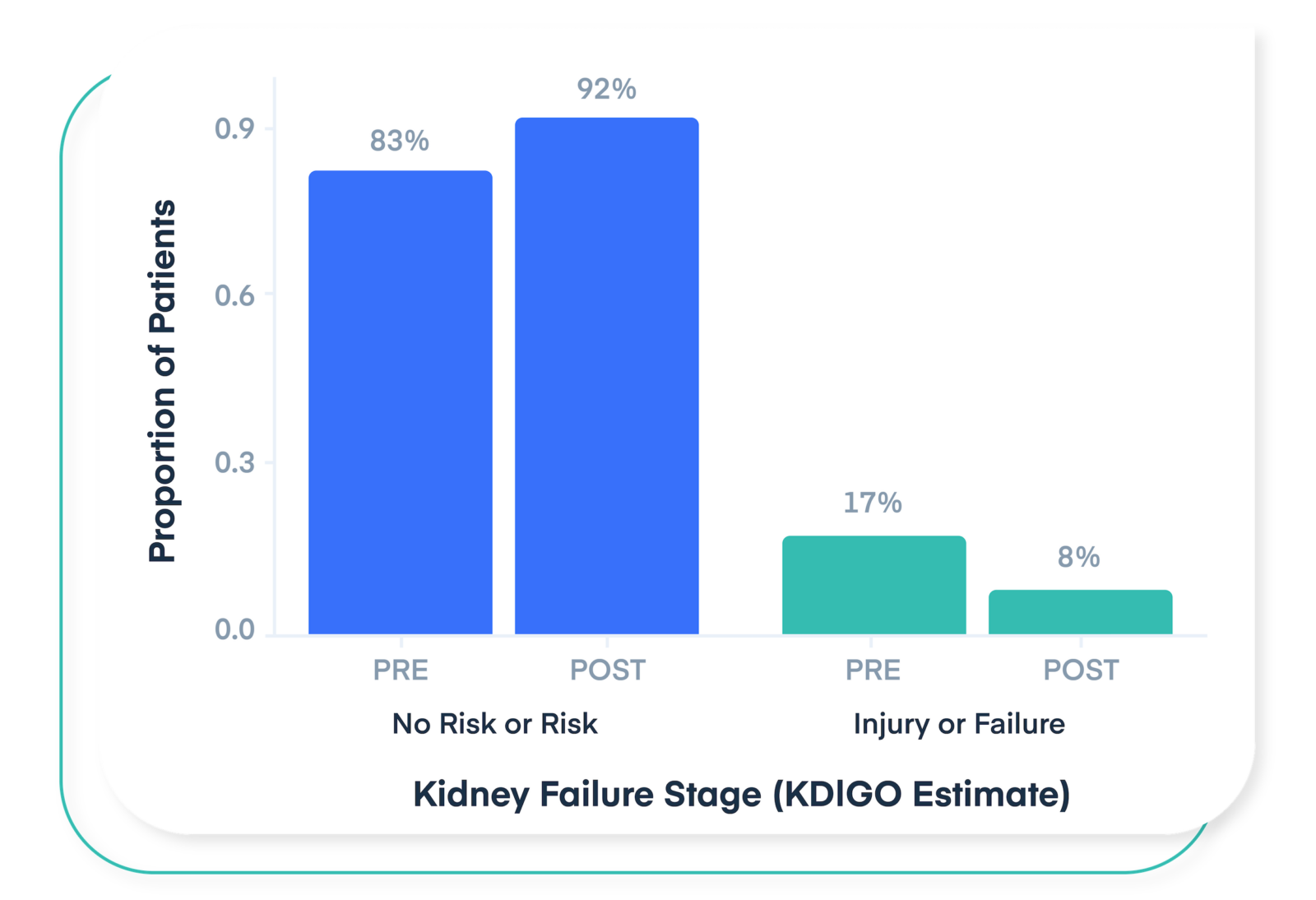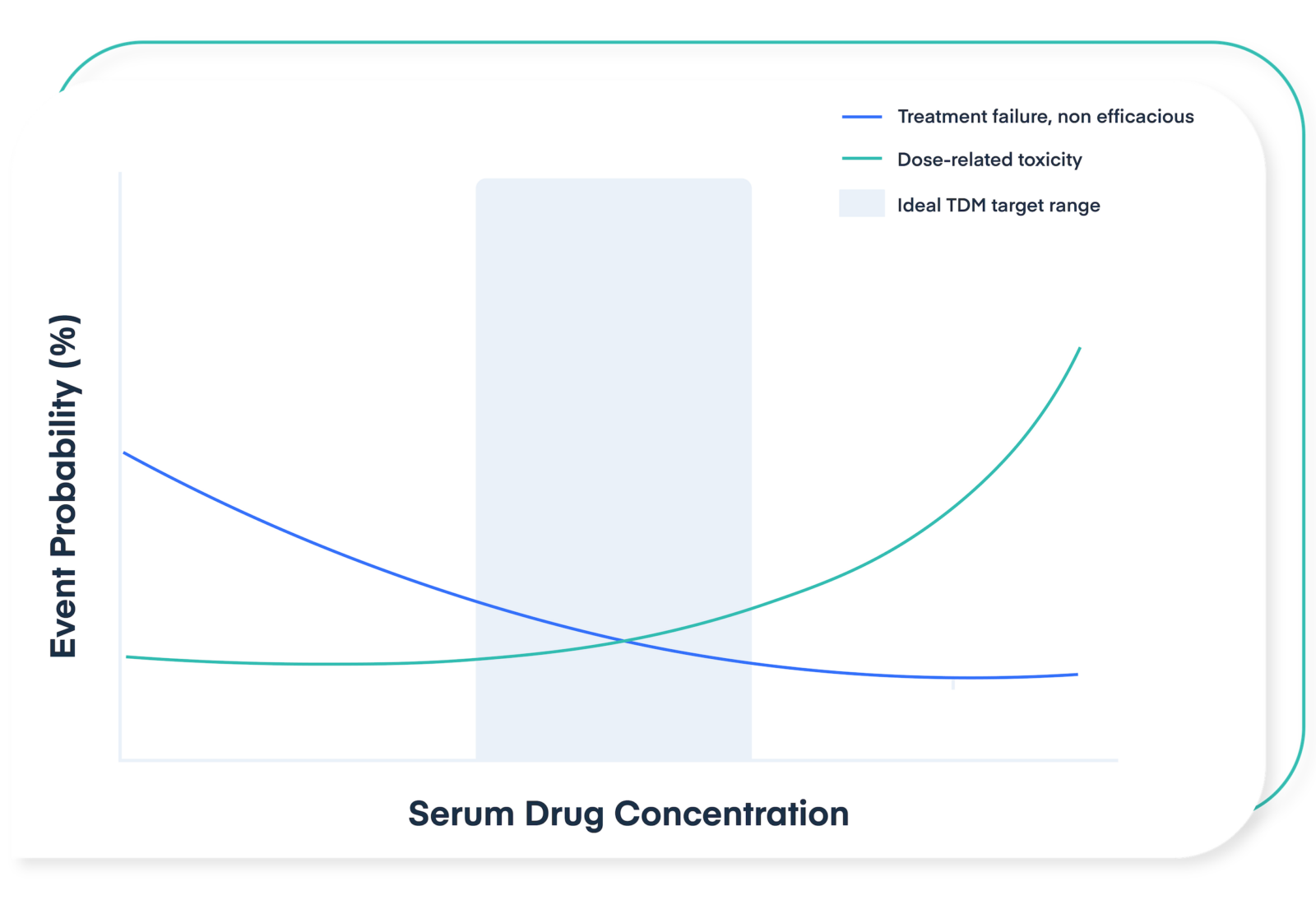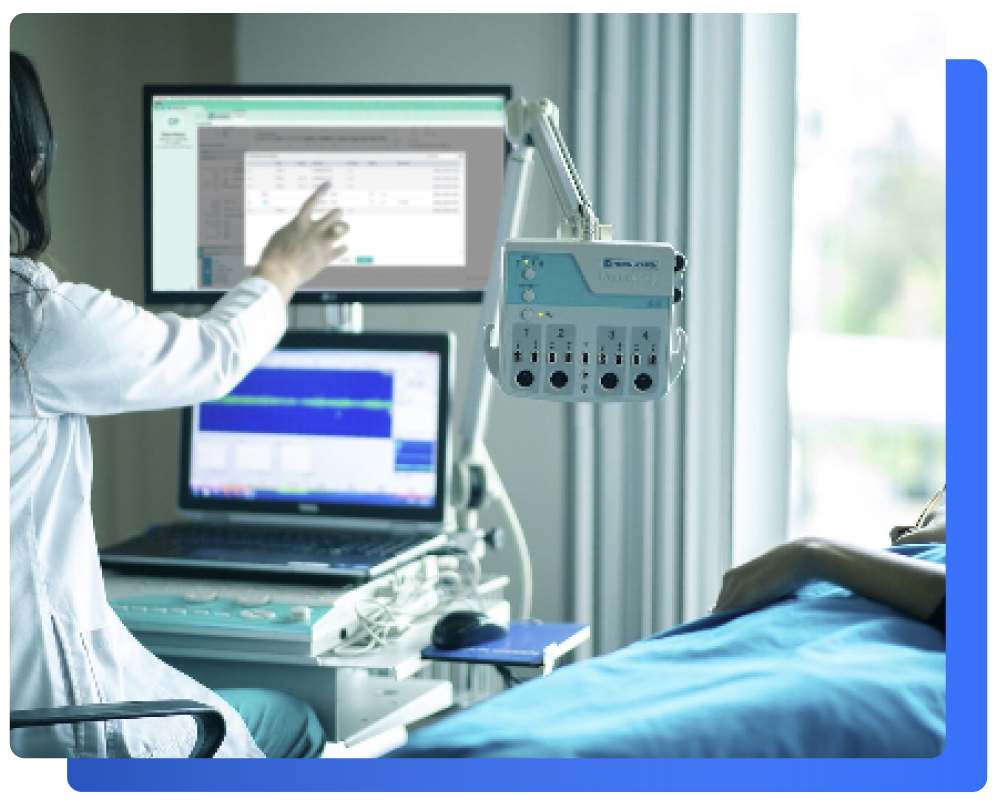Deliver higher quality care
With model-informed precision dosing, you can use patients’ unique pharmacological profiles to predict their likely response to a given dosing regimen.

Reduce adverse drug events, length of stay, and unnecessary costs.
Drugs with narrow therapeutic windows have potential for inconsistent target attainment, leading to suboptimal clinical outcomes. High inter-patient variability can also make it more difficult to find an appropriate dosing regimen. Model-informed precision dosing uses population and patient-specific data to enable you to arrive at the most appropriate regimen for each patient.

Ensure that patients get maximum benefit from medications.
Medications are thought to be effective in only 25% to 62% of patients. With a combination of therapeutic drug monitoring and precision dosing, you can avoid subtherapeutic doses by targeting a desired drug exposure range, as predicted for each individual patient from drug levels, lab results, and demographic data.

Enhance and complement clinical expertise.
Rather than replacing clinicians’ expertise, precision dosing enhances it by allowing clinicians to tailor their prescribing regimens to individual patients and increasing their confidence in these regimens. In particular, clinical pharmacists using precision dosing can practice at the top of their license and better support other service lines and departments with state-of-the-art individualized medicine.